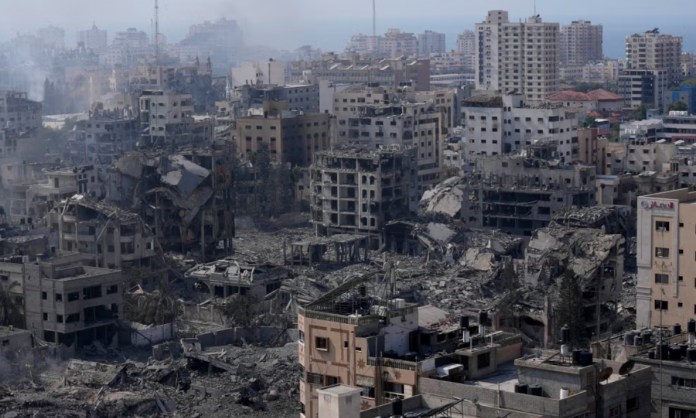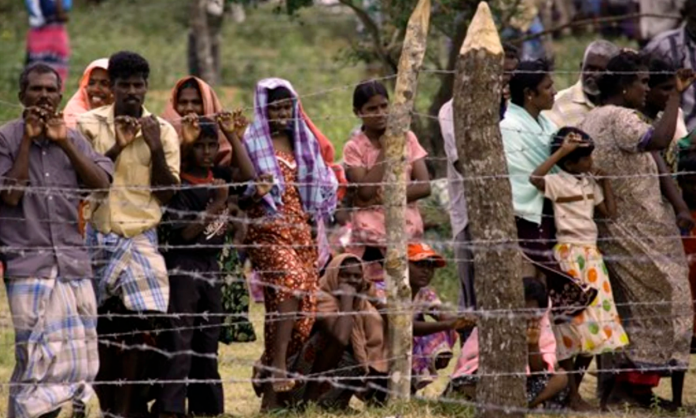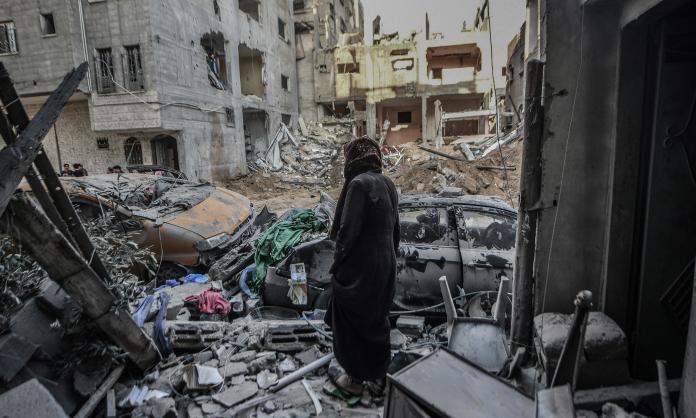Hajar Riad is a Palestinian-Australian socialist involved in the Free Palestine Melbourne campaign. She has family living in Nablus, a city in the West Bank, and friends in Gaza. This week she has been talking to people on the ground in Gaza and the West Bank who are facing renewed atrocities at the hands of the Israeli state and military. Their messages are recounted below.
The sole remaining power station in Gaza ran out of fuel on Wednesday, 11 October, after Israel shut off the electricity supply. Two and a half million people living in the densely populated strip are running out of food, fuel, water and medical supplies. Many are seeking shelter in the corridors of schools and hospitals to try to escape Israel’s relentless bombardment.
Six thousand bombs have flattened residential buildings, towers and critical infrastructure. Entire families have been wiped out in refugee camps. In just one week, 1,500 Palestinians in Gaza have been killed, including 500 children. Nobody knows when or where the next bomb will drop; all they can do is frantically try to rescue the injured and hold on tight to loved ones. Israel has just warned half the population—more than one million people—that they have 24 hours to flee to the south of the Strip.
“Darkness has taken over Gaza”, Razan, a 26-year-old Gazan woman tells me. “We are being slaughtered in the dark; we’re soon going to run out of basic life necessities. If we’re not going to die because of the bombs, then we’ll die because of starvation.”
She explains to me just how helpless people feel, how there is nowhere to go, just sheer chaos everywhere. Razan left the hospital where she has sought shelter to return home for an hour to access the internet. She wants to post on social media to update the world on the atrocities she’s witnessing, knowing very well that she risks her life every time she does this.
Pictures and videos of deceased babies being pulled out from under the rubble and mothers crying out for their missing children flood her feed. “I know people are not getting the truth about the situation we are facing. My life is at risk either way; I’d rather die getting the truth out there than die not showing the world how we are being exterminated.”
The sounds of bombs are deafening, even through the phone. She believes it’s only a matter of time before a ground invasion wipes Gaza, and everyone who lives there, off the map.
“In Karama [a north Gazan neighbourhood] they are using white phosphorus on ordinary people; there is no mercy and no other intention than to leave lasting harm.” Videos show white phosphorus being dropped on multiple Gazan neighbourhoods, even though its use on civilians is considered a war crime under international law.
Abdulla, a 23-year-old Gazan man, compares the situation to living like animals. “Even then, people wouldn’t want animals to be treated like this”, he says. “We are facing an ongoing genocide.”
His family lost their home and are now seeking shelter at a school where the only available water supply has almost run dry. “The water we have is only for drinking, we still have debris on our hair and skin”, he tells me.
Abdulla was studying for a bachelor of education at the Islamic University of Gaza before it was flattened to the ground by Israeli bombs. “I’ve always wanted to be a teacher and teach the next generation of Gazan children just how important our history is, because they need to know there was a time when Gaza wasn’t under siege.” He is one of millions whose dreams and aspirations have been reduced to rubble like the buildings around them as the bombardment worsens by the day.
Meanwhile, in the West Bank, thousands of additional Israeli soldiers have been deployed to block the entrances to Palestinian towns with iron gates, earth mounds and cement blocks. They are being completely locked down: nobody is allowed in or out, and ambulances can’t move from city to city if victims need specific medical attention. Many on the ground are worried that this temporary blockade of the occupied West Bank is a precursor to something a lot more permanent.
My cousin Yassir explains to me that this past year has been extremely tense in Nablus, with rallies and mass funerals occurring weekly. Now that Gaza is facing its worst bombardment in decades, organising these events is much more difficult because of the Israeli government and the Palestinian Authority’s coordinated repression.
“Anybody who goes out and protests is shot at”, explains Yassir. Two Palestinians were shot by illegal settlers at a funeral for their relative who had been killed the day before. Traditional funeral proceedings have been banned for all three of them.
“The situation everywhere in Palestine is only going to get worse, but we have no help”, says Yassir. This rings true: world leaders are united in their support for Israel’s murderous campaign against the Palestinians. Both the United Kingdom and the United States have sent navy ships, planes carrying ammunition and military intelligence to one of the most militarised nations in the world.
This is the horrifying reality: relentless, unapologetic genocide.







